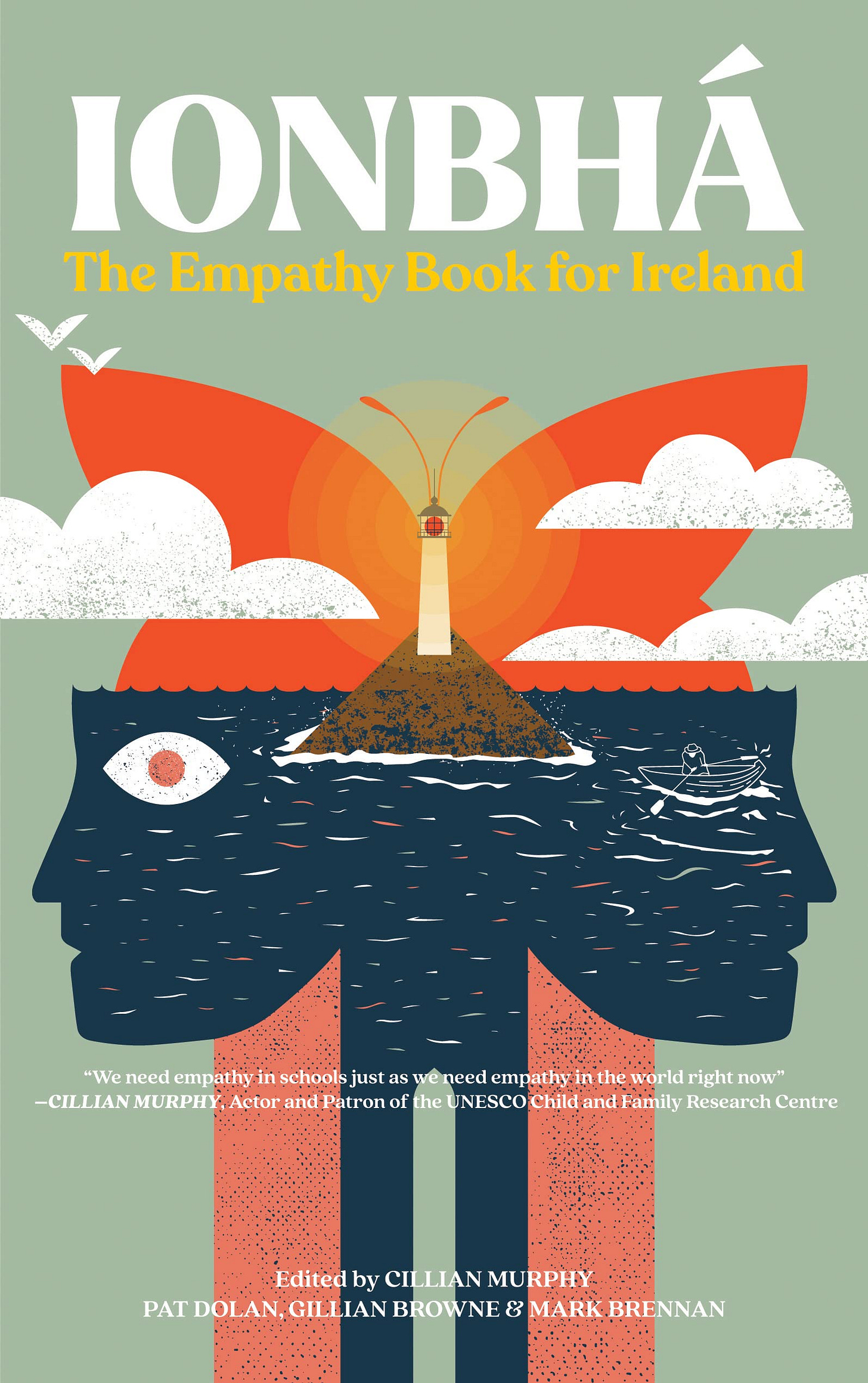New Year, New Newsletter & How to Say “Testicle” in Flemish
An intro to my six-degrees-of-separation mind, Bad Sisters, empathy & a mini Flemish & Irish lesson
My partner has been encouraging me to start a newsletter for years. And when I say years, I mean years. He listens to a lot of marketing and business podcasts and when writers were starting Substacks years ago, he suggested I get on board. I didn’t listen. In my defence, I had, and still have, a lot going on: young children, multiple work and research projects, other stuff I will one day write about. Plus, I am apparently a sucker who keeps hoping the state of journalism will again be what it once was a long time ago when I first started writing for publications. Sure, let’s keep pitching into the void, yes to some great editors, but also to others who never acknowledge emails or ghost writers — total asshole move, by the way. And sure, let’s pay writers the exact same cents-per-word we paid nearly 20 years ago. My partner will also tell you I often don’t listen to his advice until I hear it from someone else, as if I need an outside source. Clearly, journalism school haunts me: “you need more than one source!”
But finally, here I am starting a newsletter for many reasons but mostly, because I often want to write more than an Instagram caption on really important topics around mothering, language and generally, both. I spend considerable time deleting words to make the “your caption is too long” pop-up disappear on Instagram; Time that could be spent writing a Substack! As I always say about teaching children a new language: it is never too early and it is never too late (more on this soon, I promise).

One of the things I love most about other people’s newsletters is when writers recommend books, TV shows, movies, articles and everything else. I love a good link and a good recap of something that is going on in the world I missed or only want to spend a few seconds considering. So perhaps this is also the place for those things, especially at the end of a year when there are many “top lists” floating around. I have this magical ability to link almost anything to mothering and/or language. Just kidding, it’s not me, it is because, as I so often also say, everything is connected!
Because I really, really wanted to include the “testicle in Flemish” bit in the headline, I will now digress a bit from an intro-to-this-newsletter post but bear with me as I tell you that I, like so many others, loved Bad Sisters this year. I am a huge Sharon Horgan fan and also highly recommend her movie with James McAvoy, Together. When I love a series or an actor in a series, I usually go down a black hole of Googling. This time, I found out Bad Sisters was filmed all over Ireland with a predominantly Irish cast and is based on a Flemish series called “Clan” where the monstrous JP (a.k.a. “The Prick”) is called "De Kloot": “kloot” means “bollock”, “testicle”, “ball” in Flemish. And there it is, the language connection! Here, I could also go on about the maternal figures in Bad Sisters and how that plays out in the show but I think that is best left for another time. I am including a tweet reply below I sent last month about fangirling the actress Anne-Marie Duff, who plays Grace in Bad Sisters, when I saw her walking in North London.

After Bad Sisters, Ireland was on my mind and I posted a quote from Edna O’Brien’s Mother Ireland on Instagram which led me to do a deep dive on what schools in Ireland are doing to make sure children speak Irish. I plan on reading more about this as the connection between home languages and the education system is a big part of my research on mothers raising bilingual children. (I’ve talked a bit about “language nests” on Instagram, see below.)
But one more quick connection to language via Ireland. Yesterday, I came across actor Cillian Murphy’s new book "Ionbhá: The Empathy Book for Ireland," a collection of poems, essays, and thoughts from well-known Irish figures on how children need to be taught empathy in schools. In an interview in the FT’s HTSI, Murphy recounted how his mother taught him French at home and his father would speak to him in Irish. The article doesn’t explicitly state that Murphy’s multilingualism is responsible for his interest and passion for teaching children empathy and yes, the academic in me will reiterate correlation does not mean causation but, my MA thesis was on the link between empathy and early bilingualism — just saying.
Maybe I should call this newsletter “Just Saying” instead.
Welcome and thank you for reading.






